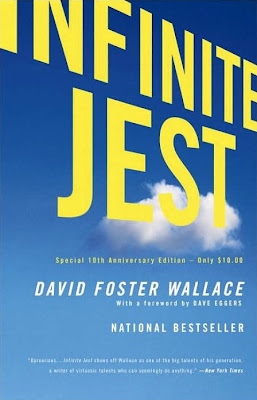My Year of Reading: 2012
Welcome to 2013! Another year of reading in the... um.... books.
This marks the beginning of the third year I have kept this blog. In that time I have written up on every single book I have read in that time. I've blogged through sickness, vacations, typhoons and pregnancy. I'm the blogosphere's version of the postal service! I've even managed to maintain the blog through the first six weeks of my daughter's life. Why stop now, hey? Here's to continued reading success in the new year.
I'm not one for memes, though I like to follow what others are reading. I think reading challenges are a clever idea, but I've never felt compelled to force myself to do more or less of anything literary. I see a lot of bloggers stating that they will read ten classics this year or that they will endeavor to finish at least five books over 700 pages or that they will read more non-fiction or Charles Dickens or less erotica or whatever. I respect the diligence and discipline, but I've always considered the act of reading (no matter what I am reading) as diligence and discipline in and of itself. Furthermore, reading challenges often narrow a person's reading rather than broaden it. So I vow to continue reading whatever I may get my hands on over the next twelve months.
So what's new in 2013? Well, for one thing, I will be sharing a portion of my reviews with the good people over at I Read A Book Once.... If you haven't been over there yet, I sincerely urge you to do so. Jonathan is doing some stand up work and the resources he is amassing put this little corner of the net to shame. And since this blog is strictly reviews I might even get around to posting a rant or two along the way. I'll be sure to let everyone know when I have posted something new over there.
Otherwise, let's get to the main event, shall we? We're all here to get a load of my year end lists. And without further ado, here they are in no particular order...
Best Fiction of the Year
1. The Poisonwood Bible by Barbara Kingsolver
This novel absolutely blindsided me. When someone asks me my favorite novels, this one always seems to pop in my head.
2. A Storm of Swords by George R.R. Martin
I could have chosen any one of three of the George R.R. Martin novels I read this year, but I'll go with my favorite.
3. Crooked Letter, Crooked Letter by Tom Franklin
This is one of those solidly written novels that you carry with you for years.
4. The Remains of the Day by Kazuo Ishiguro
Ishiguro made my top five last year and manages to find his way on again with this nuanced masterpiece.
5. The Virgin Suicides by Jeffery Eugenides
Speaking of making my list two years in a row, Here's Eugenides again. I had wanted to read this novel for ages and it did not disappoint.
Best Non-Fiction of the Year
1. Bossypants by Tina Fey
The great thing about this book was that its awesomeness was completely unexpected.
Yeah, sure the writing is atrocious but I double dog dare you to read this book without a)bawling and b) becoming a huge Anvil fan.
3. Cinderella Ate My Daughter by Peggy Orenstein
Perhaps it was the impending birth of my daughter, but this diatribe on the insidious marketing strategies aimed at young girls really struck a chord. Everyone with a daughter should read this.
4. Battle Hymn of the Tiger Mother by Amy Chua
This book got a lot of undeserved slack. It's a very open and honest book about parenting and worth reading.
5. The Tragedy of Great Power Politics by John J. Mearsheimer
Anyone even remotely interested in the larger workings of world politics should read this book. Whether you agree or disagree, Mearsheimer presents some compelling evidence.
Worst Books of the Year
Note: I'm not implying that these are bad books when I list them as the worst books. These are books that either disappointed me or failed to live up to certain expectations. I still stand in awe of the fact that these people are able to sit down and write novels. I have unwavering respect for that.
1. The Thousand Autumns of Jacob de Zoet by David Mitchell
After Cloud Atlas, how was Mitchell ever going to maintain expectations? This book is fine, but ultimately disappointing.
2. The Hunger Games by Suzanne Collins
...and a million YA readers wept. Sorry.
3. The Postmistress by Sarah Blake
Meh.
4. The Story of O by Pauline Reage
Shocking erotica that failed to shock or eroticize. Fifty Shades of Snore.
5. Tinker Tailor Soldier Spy by John le Carre
Seriously, WTF was going on?
Anyway. Hope everyone had a great New Years and I look forward to continuing the blog into 2013.












